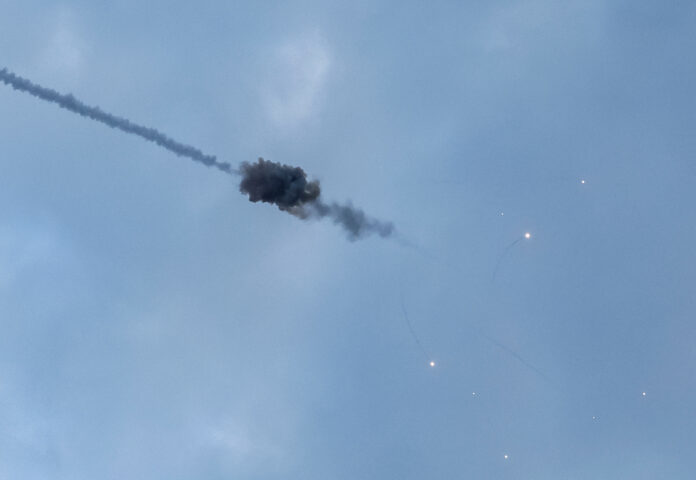Russia launched a significant air assault against Ukraine, marking another grave chapter in the ongoing conflict. The Sunday offensive, comprising 57 missiles and drones, targeted Kyiv and the Western region of Lviv, highlighting the relentless nature of Russia’s military strategy. This latest barrage, occurring just two days after a devastating strike on Ukraine’s energy infrastructure, underscores the war’s brutal and unyielding progression.
Among the weapons deployed were advanced hypersonic missiles, posing a formidable challenge to defensive efforts due to their speed and maneuverability. Despite this, the Ukrainian Air Force reported successful interception of most incoming threats, a testament to Ukraine’s resilience in the face of such relentless aggression. However, the strikes were not without consequence, as an energy facility in Western Ukraine suffered damage, though initial reports thankfully indicate no casualties.
This recent aggression coincides with a moment of vulnerability for Russia, following a major security breach that allowed a deadly attack by ISIS-K-affiliated terrorists at a suburban Moscow concert hall, claiming over 130 lives. This incident not only represents a significant lapse in Russia’s internal security but also exposes the complex web of threats the nation faces, both internally and on its borders.
The timing of these events is particularly poignant, coming on the heels of a U.S. security alert that foresaw potential extremist activities in Moscow. President Putin’s dismissal of these warnings as intimidation tactics, followed by a baseless suggestion of Ukrainian involvement in the Moscow attack, reflects the heightened tensions and mutual recriminations defining the current state of Russo-Ukrainian relations.
Vice President Kamala Harris, in a clear rebuttal to Putin’s unfounded claims, affirmed the absence of any evidence linking Ukraine to the Moscow tragedy, instead attributing the attack squarely to ISIS-K. This stance reinforces the international consensus regarding the terrorist group’s responsibility and underscores the tragedy’s global reverberations, extending beyond regional geopolitics to touch on broader issues of security and terrorism.
As Russia mourns the victims of the concert hall attack, the arrest of individuals allegedly connected to the bombing does little to mitigate the broader implications of the incident or the ongoing conflict with Ukraine. The dual crises Russia faces — one of internal security and another of international condemnation for its actions in Ukraine — highlight the complex challenges at the heart of contemporary global affairs.
This intersection of tragedy, conflict, and international diplomacy serves as a stark reminder of the multifaceted nature of modern geopolitics, where domestic incidents can have profound implications for international relations and vice versa. As the situation unfolds, the global community watches closely, hoping for resolutions that can bring peace to the region and justice for all victims of violence and aggression.



